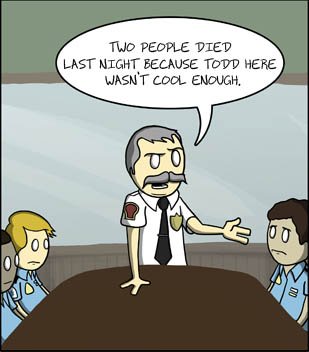There seems to be some confusion, some of it deliberate, about Florida’s “guns in parking lots” law. The law allows citizens who possess a valid Concealed Weapons permit to keep firearms in their vehicles without fear that they can lose their jobs for doing so. It prohibits an employer from taking any action against an employee for having a firearm in his car, or for refusing a search of his car that is intended to look for weapons.
Exempted from this law are employers that operate certain types of businesses, like nuclear weapons plants and explosives manufacturers. This is where the confusion begins. Disney has stated that they have a policy that weapons are prohibited in the theme park areas, and this is enforceable because of that clause. To clear this up, lets take a look that the clause and what it means. The exemption clause reads:
(7) EXCEPTIONS. The prohibitions in subsection (4) do not apply to: (snip irrelevant parts)
(e) Property owned or leased by a public or private employer or the landlord of a public or private employer upon which the primary business conducted is the manufacture, use, storage, or transportation of combustible or explosive materials regulated under state or federal law, or property owned or leased by an employer who has obtained a permit required under 18 U.S.C. s. 842 to engage in the business of importing, manufacturing, or dealing in explosive materials on such property. (Emphasis added)
Since Disney is not in the PRIMARY business of handling or manufacturing explosives, the bold part is where Disney claims to derive the ability to exempt itself from the law. This is where the deliberate obfuscation comes in. The permit that is issued pursuant to 18 USC 842 is a permit issued by the Federal Bureau of Alcohol, Tobacco, Firearms, and Explosives (BATFE) to manufacture and deal in explosives. Disney has such a permit, as they use it to purchase wholesale Class C explosives (fireworks) for their daily fireworks shows. This would seem to place Disney firmly in the exempted class of employers. Until you dig.
Disney’s permit to manufacture explosives only covers a specific piece of property, the property where the explosives are stored and handled. In the county plat book, the Disney resort area is not one contiguous piece of property, but is divided into hundreds of smaller plots of land. This is probably done for tax reasons, and to avoid fire codes that would prohibit handling explosives on the same land where operating theme parks and hotels. Since this is the case, an employee working at the EPCOT, Magic Kingdom, or Animal Kingdom resort, or at any of the hotels in the Disney area would not be on the same piece of property where the employers is licensed to handle the explosives. Thus, Disney should not be exempt on any property not covered by the explosives permit.
I believe that this is the case that was being made by Jon Gutmacher when he was representing Mr Sotomayor in his lawsuit against Disney. We will never know, because Disney settled the case out of court to avoid losing, and the terms of the settlement have not been disclosed.


